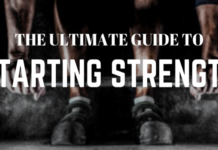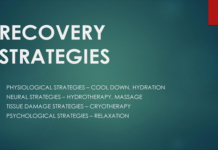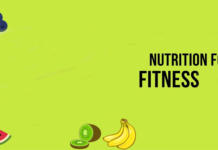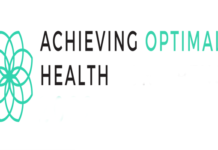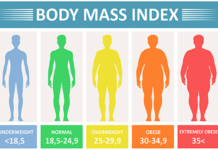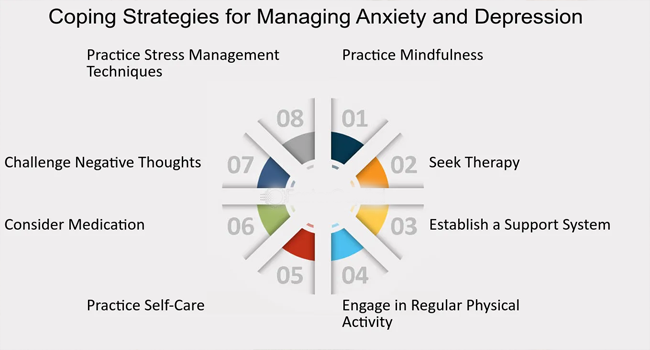Introduction:
In our short-paced world, stress and tension have become uncommon partners for many. The demands of modern-day life, private challenges, and international uncertainties often leave people feeling crushed and emotionally tired. However, it’s crucial to recognize that intellectual fitness topics and that there are powerful techniques for managing strain and tension. In this comprehensive dialogue, we will explore the nature of stress and anxiety, their effect on intellectual fitness, and practical techniques for coping with them efficaciously.
Understanding Stress and Anxiety:
Stress and anxiety are natural responses to perceived threats or pressure, whether or not actual or imagined. Stress typically arises from outside factors, such as work time limits, financial difficulties, or courting issues, while tension frequently stems from internal worries about the future or past events. While each is an ordinary reaction, extended or excessive stress and tension can affect mental and physical well-being.
The Impact on Mental Health:
Chronic stress and tension can contribute to mental health issues, together with despair, panic disorder, and generalized tension disease. These conditions can extensively impair daily functioning, disrupt relationships, and decrease basic fine of lifestyles. Furthermore, untreated stress and tension may also appear in bodily symptoms like complications, insomnia, and gastrointestinal issues, further exacerbating the hassle. Coping with those problems is vital to save you from long-term consequences.
Effective Coping Strategies:
Fortunately, there are various techniques people can use to cope with strain and tension and promote higher intellectual health. These strategies vary from lifestyle modifications to therapeutic interventions and self-care practices. Here are some evidence-based approaches:
Mindfulness and Meditation:
Mindfulness and meditation techniques can assist individuals in domesticating present-second cognizance and decrease rumination on beyond or destiny stressors. Mindfulness-based strain discount (MBSR) programs have proven promise in assuaging signs of hysteria and enhancing average well-being.
Exercise:
Regular physical hobbies have been related to decreased tiers of pressure and anxiety. Exercise promotes the release of endorphins, neurotransmitters that act as natural temper lifters, and facilitates individuals to manipulate their feelings more correctly. Whether going for walks, yoga, or swimming, locating a fun workout may be instrumental in preventing pressure.
Healthy Lifestyle Habits:
Maintaining a balanced food plan, getting adequate sleep, and keeping off excessive caffeine and alcohol intake are essential components of managing strain and anxiety. A nourished frame and rested thoughts are better ready to deal with life’s demanding situations and bounce back from setbacks.
Cognitive-Behavioral Therapy (CBT):
CBT is an extensively used therapeutic approach that allows individuals to identify and assign negative thought patterns and behaviours contributing to their strain and tension. Through base periods with an educated therapist, clients research practical coping skills and develop healthier ways of responding to stressors.
Social Support:
Connecting with buddies, circle of relatives, or aid companies can provide valuable emotional support at some stage in times of pressure. Sharing reviews and searching for recommendations from trusted individuals fosters a feeling of belonging and reduces emotions of isolation.
Relaxation Techniques:
Practising relaxation techniques, which include deep breathing exercises, innovative muscle relaxation, or guided imagery, can induce a kingdom of calmness and decrease physiological arousal related to pressure and anxiety. These techniques may be instrumental throughout moments of heightened tension or panic.
Time Management:
Effective time control techniques, such as prioritizing responsibilities, putting practical desires, and studying, whilst essential, can prevent feelings of weight down and assist people in regaining experience in managing their lives.
Professional Help:
In a few cases, searching for professional assistance from a therapist, counsellor, or psychiatrist can be critical, significantly if stress and tension are extensively impacting day-by-day functioning or persist, notwithstanding self-help efforts. Mental fitness specialists can provide personalized treatment plans and interventions tailored to character wishes.
Indeed, let’s delve deeper into a few additional factors for managing strain and anxiety:
Self-Compassion:
Practising self-compassion involves treating oneself with kindness, knowledge, and popularity, particularly during complicated times. Instead of being overly self-important or judgmental, individuals can cultivate a sense of self-compassion by imparting the same warmth and empathy they might give to a chum in need. Research has shown that self-compassion decreases depression, tension, and depression, in addition to more resilience and typical well-being. well-beingundaries:
Setting boundaries is an essential aspect of self-care and stress management. It includes recognizing one’s limits and communicating them assertively to others. This may consist of pronouncing no to extra commitments when feeling beaten, setting limits on painting hours or era use, or maintaining private boundaries in relationships. Setting limitations allows people to guard their physical, emotional, and mental health, reducing the likelihood of burnout and resentment.
Gratitude Practice:
Cultivating a gratitude exercise entails intentionally focusing on and expressing gratitude for the superb elements of existence. This can be done through journaling, creating a daily gratitude list, or reflecting on the matters one is grateful for. Research suggests that training gratitude is related to improved emotions of happiness, improved temper, and decreased levels of stress and tension. People can domesticate an extra optimistic outlook on lifestyles by moving interest far away from concerns and toward appreciation.
Creative Expression:
Engaging in creative sports consisting of artwork, track, writing, or crafting can be a healing outlet for processing emotions and decreasing pressure. Creative expression permits individuals to channel their minds and feelings into a tangible shape, fostering self-expression and self-discovery. Whether it is portrayed, playing a device, or writing poetry, locating an innovative outlet can offer solace and a sense of achievement amidst life’s demanding situations.
Nature Therapy:
Spending time in nature has been shown to have several benefits for intellectual fitness, including reducing strain, tension, and rumination. Whether going for a hike, gardening, or strolling in the park, immersing oneself in an herbal environment can sell rest, enhance temper, and repair a sense of connection to the sector. Nature therapy, also called ecotherapy, emphasizes the recovery energy of the natural environment and encourages people to reconnect with the earth for better well-being.
Incorporating those extra coping techniques into one’s daily routine beautifies resilience, promotes emotional well-being, and fosters an expense of stability and achievement in lifestyles. Remember, handling pressure and anxiety is an adventure, and it’s essential to try to find assistance and try different approaches till you discover what works high-quality for you. Individuals can navigate demanding situations more efficiently and resiliently by prioritizing self-care, fostering supportive relationships, and searching for expert help.
Conclusion:
In conclusion, intellectual fitness matters, and handling pressure and tension is crucial for overall well-being. By expertise in the character of stress and anxiety, spotting their impact on intellectual fitness, and implementing effective coping strategies, people can reclaim control over their lives and foster resilience in the face of adversity. Remember, searching for assistance indicates strength, no longer a a weak spot, and there may be the desire and assistance available for those suffering from stress and tension. We can prioritize mental fitness and create a healthier, more resilient society.




